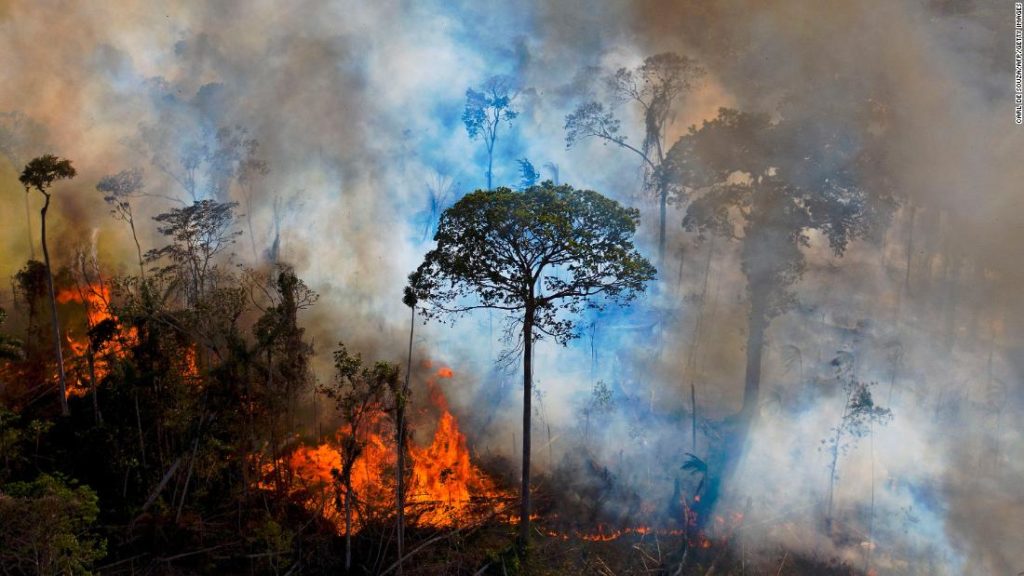“Widespread drought conditions in 2021 are a worrisome sign that extreme fire risk could affect a large part of South America, straining firefighting resources and threatening ecosystems, infrastructure, and public health,” said Douglas Morton, a NASA Earth scientist who studies fires in the Amazon and surrounding areas.
Most large fires in the Amazon are started by humans on recently cleared land. And deforestation for logging, mining and farming fragments the forest, experts say, making it more susceptible to catching fire on its edges.
“The edge of a forest is warmer and drier than large tracts of unfragmented forest, so fires are more likely to start at the edges and move into the forest,” said Marcos Heil Costa, a professor at the Federal University of Viçosa in Brazil.
“All that deforestation that everyone was fretting about in 2020, now it’s coming back to burn,” said Finer. “And I think that the newer deforestation that’s spreading now, that’s what we’re going to see burn in August or September when the dry season really intensifies.”
The rampant deforestation combined with extreme drought is turning parts of the Amazon into a tinderbox.
Experts fear the region is set for a repeat in 2021.
Mato Grosso, which includes parts of the southern Amazon, has been the center of most of the fire activity so far this year, according to Finer.
“As of yesterday, we’ve detected 17 major fires so far this year and they’ve all been in Mato Grosso,” Finer said.
Warm ocean temperatures in the tropical North Atlantic Ocean in 2020 and a La Niña weather pattern that’s persisted over the Pacific Ocean have shifted precipitation conditions across the entire South American continent, Morton said, including the rainforest.
Few ecosystems on Earth are as critical to the global climate as the Amazon rainforest.
But when it burns, the carbon that is stored in the forest is released into the air, where it can stay for hundreds of years and contribute to even more global warming.
“Climate change doesn’t respect political and geographic boundaries, Brando said, “and what happens in the Amazon will affect the entire planet.”
CNN’s Taylor Barnes and Rodrigo Pedroso contributed to this report.
You may also like
-
Afghanistan: Civilian casualties hit record high amid US withdrawal, UN says
-
How Taiwan is trying to defend against a cyber ‘World War III’
-
Pandemic travel news this week: Quarantine escapes and airplane disguises
-
Why would anyone trust Brexit Britain again?
-
Black fungus: A second crisis is killing survivors of India’s worst Covid wave

